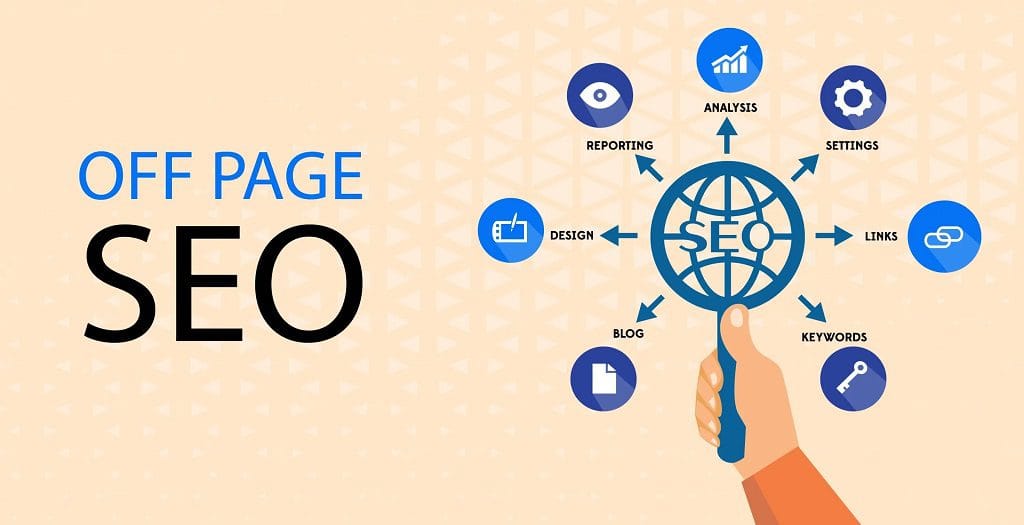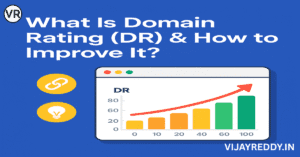🧭 What is Off-Page SEO?
Off-Page SEO refers to all the actions taken outside of your own website that impact your rankings in search engine results pages (SERPs).
While on-page SEO focuses on content and site structure, off-page SEO builds your site’s reputation, authority, and trustworthiness across the web.
The most well-known off-page SEO factor is backlinks, but it also includes social signals, brand mentions, reviews, and content sharing.
✅ Why Off-Page SEO Matters
- Boosts Domain Authority: Quality backlinks from trusted websites increase your site’s credibility.
- Improves Search Rankings: Google considers backlinks as votes of confidence.
- Drives Referral Traffic: Links on blogs, news, or forums bring relevant visitors.
- Strengthens Brand Visibility: Mentions across the web build your brand identity.

🔧 Off-Page SEO Strategy
Follow these step-by-step strategies to improve your off-page SEO and domain authority:
1. 📌 Backlink Building (Quality over Quantity)
How to get backlinks:
- Guest Posting: Write articles for industry-relevant blogs.
- Broken Link Building: Find dead links and offer your content as a replacement.
- Create Link-Worthy Content: Stats, infographics, and tools get more natural links.
- HARO (Help A Reporter Out): Respond to journalist queries for backlinks from top sites.
- Skyscraper Technique: Improve popular content and ask those linking to the original to link to yours instead.
2. 🔍 Social Media Engagement
- Share your content across platforms (LinkedIn, Twitter, Facebook, etc.)
- Encourage shares and discussions
- Social signals aren’t direct ranking factors but help increase visibility and traffic
3. 🗣️ Brand Mentions & Online PR
- Even non-linked brand mentions help Google understand your site’s relevance and popularity
- Use platforms like BuzzSumo to monitor mentions
- Appear in industry interviews, podcasts, and publications
4. 🌐 Local SEO & Citations (For Local Businesses)
- List your business on Google Business Profile, Yelp, JustDial, Sulekha, etc.
- Ensure consistent NAP (Name, Address, Phone) info across all directories
- Collect and manage Google reviews and testimonials
5. 📣 Forum & Community Participation
- Answer questions on Quora, Reddit, and niche forums
- Use links in a non-spammy, helpful way
- Builds relevance and referral traffic
6. 🛠️ Influencer & Blogger Outreach
- Collaborate with influencers or micro-bloggers in your niche
- Use tools like Hunter.io, BuzzStream, or LinkedIn to connect with them
- Offer value — content exchange, partnerships, reviews
📈 Track Your Off-Page SEO Progress
Use tools like:
- Ahrefs / SEMrush / Moz – to monitor backlinks and domain authority
- Google Search Console – to track which pages are getting links
- Google Alerts – to monitor brand mentions
💡 Final Thoughts
Off-page SEO takes time, but it’s essential for long-term ranking success.
Focus on building relationships, creating valuable content, and earning trust from authoritative sources. Quality always beats quantity.


